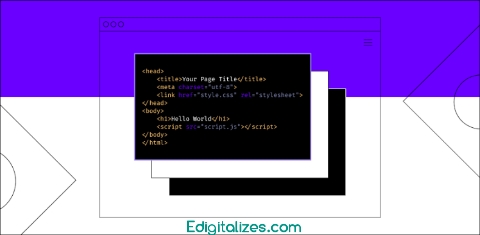
Advertisement
The right platform means much when building a website. There are decades of preference between WordPress and static HTML sites, having each their own strong and weak points, hence being applicable to different needs and users. Here’s a breakdown to help you decide which is best for you.
1. Ease of Use
WordPress: A user-friendly Content Management System with a very approachable environment for creating and managing content with minimal knowledge of coding. Large libraries of themes and plugins will help even the most novice users get themselves a professional-looking site done in no time.
HTML: To develop an HTML site, deep knowledge in HTML, CSS, and probably JavaScript is required. While the basic usage of HTML is rather simple, for non-technical users, the development and maintenance of a site could be challenging. Updates often require direct manipulation of the code, which can be time-consuming.
2. Customization and Flexibility
Customization with WordPress alone is available through its thousands of themes and plugins. Almost anything inside your site can be changed without having to code. The flexibility that accompanies this avenue allows you to make adjustments as quickly as the need so presents itself to help one conform to changing needs easily.
Advertisement
HTML: Static HTML sites give full control over the code by allowing custom designs. Such customization requires knowledge in programming, thus limiting its flexibility among non-developers. Quite often, this means manual coding of changes might introduce inconsistencies if not managed correctly.
3. Maintenance and Updates
WordPress is a system that requires occasional updating of its core software, themes, and plugins with regard to security concerns as well as functionality. This is mostly not much of an issue but can get overbearing for a few users, especially when some plugins conflict with each other.
HTML: Once the site is set up in HTML, it requires little to no maintenance unless any content needs to be updated. Changing the site, however, is a big job and depends upon how complex the site is because developers have to rewrite the code.
4. Performance and Speed
WordPress: Due to the additional overhead of themes and plugins, WordPress sites tend to be a bit slower. So, one can optimize performance using different kinds of caching solutions and just being select about which plugins one installs. It’s an ongoing process.
HTML: Static HTML sites load somewhat quicker, since the files are smaller and carry none of the overhead in databases and surplus code. Therefore, they are good for little websites or those where speed is a factor.
5. SEO and Marketing
WordPress: Naturally, WordPress is SEO-friendly. It proposed a lot of plugins for optimizing content. Therefore, one can create easily SEO-friendly URLs, manage metadata, and generate sitemaps.
HTML: In the case of static HTML websites, one could optimize for search engines, though with more labor-intensive processes: Direct inclusion of the best practices the developers needed to apply may be less convenient for those not seasoned enough in the process.
Conclusion
The ultimate choice between a WordPress-based site and an HTML site is a question of your very specific needs and technical experience. WordPress will suit people who value ease of use, versatility, and a bunch of features. In turn, for the developers who need full control over their code and performance, HTML might be the better choice. Evaluate your aims and resources to decide which solution would be better for your site.
Advertisement

Leave a Reply